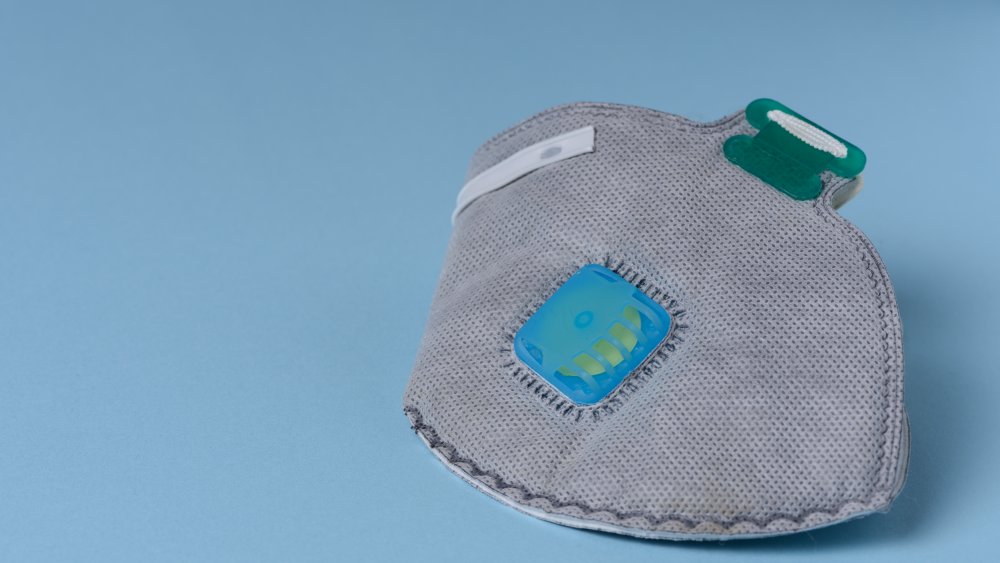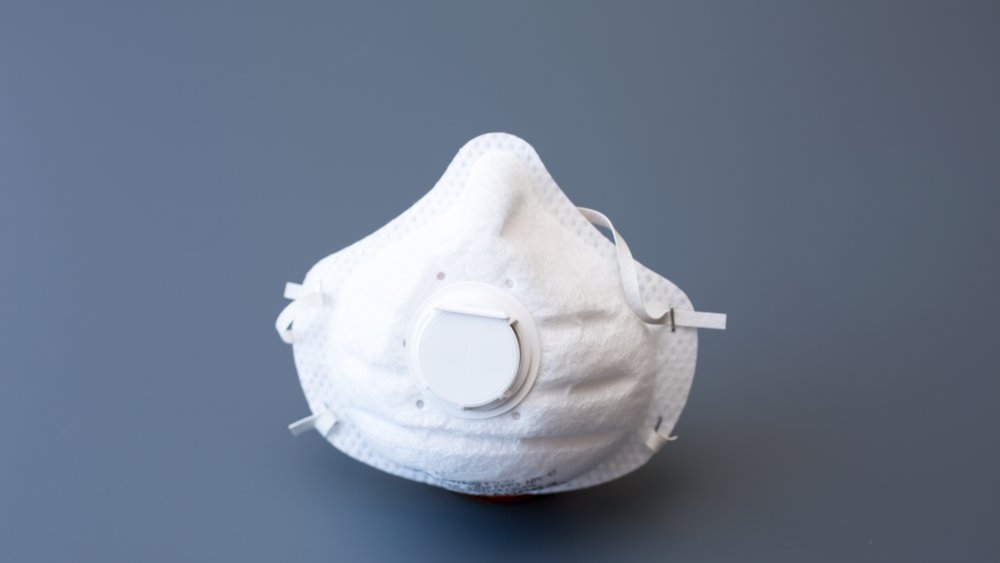The Face Masks You Should Not Be Wearing, According To The CDC
None of us could have predicted the kind of impact an illness like COVID-19 would have on society. It has forced us to change the way we interact with family and friends, practicing social distancing instead of gathering in groups. It has caused us to turn our homes into makeshift offices and classrooms. And with the CDC recommendation that we wear face masks, it has even dictated the way we present ourselves in public.
The CDC's recommendation on the use of face masks wasn't decided on a whim. Because of asymptomatic carriers of COVID-19 who might be spreading the virus unknowingly, the concern over the asymptomatic spread is so serious that wearing a face mask in public is mandatory in some cities (via Johns Hopkins University). And in urban spaces like California's Bay Area, there is a ban on any type of mask with a built-in valve (via Healthing.ca).
Why face masks with valves are not recommended
You've likely seen these types of masks before. They look and feel like medical grade N-95 respirators, and come with little plastic valves that close when you inhale, and open when you exhale. These valves make wearing masks more comfortable (or bearable, as the case may be), because they let air in, cutting down on the buildup of humidity, heat, and moisture that you might feel behind the mask in the process (via Healthing.ca).
However, these now-controversial masks with valves do the job of protecting their wearers against COVID-19, but fail at carrying out the other part of its intended task, which is to protect the people around you from your own respiratory droplets. The valve may work to clean the air you inhale, but it does nothing to the air that you exhale, which would allow you to spread the virus if you are infected, even if you don't have any symptoms.
Cloth face should be used for protection against the coronavirus
N-95 respirators that have built-in valves are best suited for industrial work or for people who are carrying out home improvement work. Their integrity is so questionable that the CDC has recommended hospitals keep away from N-95 masks with valves. The organization advises: "Respirators with exhalation valves should not be used in situations where a sterile field must be maintained (e.g., during an invasive procedure in an operating or procedure room) because the exhalation valve allows unfiltered exhaled air to escape into the sterile field" (via Fast Company).
For now, cloth masks are recommended for those of us who are either required to or want to wear face masks.


